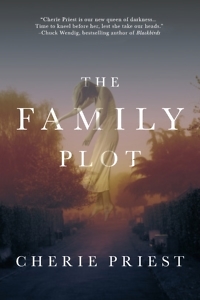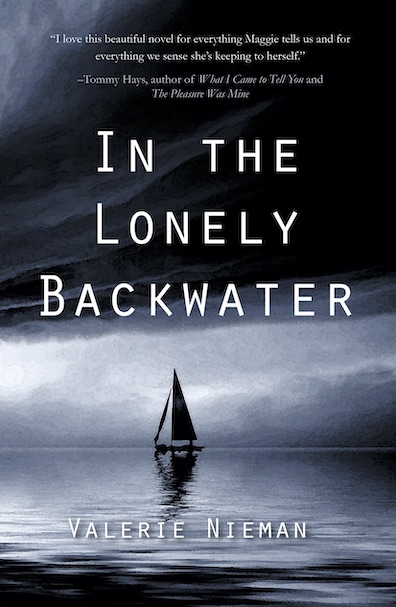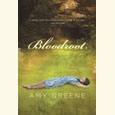A Uniquely Tennessee Take on the Haunted House
Girl meets house, house has ghosts, in Cherie Priest’s new novel
First things first. Cherie Priest’s new book, The Family Plot, is wonderful. The story of an old Chattanooga house and the desperate Nashville salvage team that comes to strip it bare before the wrecking crew arrives, the novel is full of richly drawn characters in a house so well-envisioned it feels like a real place. The ghosts are suitably scary, and their motivations are upsetting both for what the ghosts are compelled to do to the living and for what these compulsions reveal about what was done to the dead. If you want a creepy, good read, I highly recommend The Family Plot.

You can get that take from just about any other review of the book, though. What I want to talk about is just how specifically Tennessean this book is. The Family Plot is so deeply about the people and places of this state that the further I read in the book, the more it felt like a book written, in some ways, specifically for us (which is not to say that you have to be familiar with Tennessee to enjoy the book).
Take this moment early in the novel when Dahlia is driving one salvage truck from Nashville to Chattanooga and her cousin is driving another: “Somewhere around Monteagle, Bobby drew up to pass her, but she gunned the engine and wouldn’t let him.” Not only does this line tell the reader a lot about Bobby and Dahlia’s relationship, but who among us has not been behind someone like Bobby on that stretch of road—or, for that matter, Dahlia?
The old Winthrow place—the house they’re going to tear down—is just outside the suburb of St. Elmo, within walking distance of the cemetery. And the location is so well-described it’s locatable on a map. But there’s also a bit of knowledge that locals will bring to the characterization of the Winthrow house, and the people who lived in it, when they note that the house is not down in St. Elmo itself, and it’s not at the top of Lookout Mountain, either—the Winthrows were rich, but not old-money rich. And in keeping with the uniquely Tennessee spin on the tale, one character even writes a song about the events in the book. Not to mention that no one in the book ever doubts the existence of ghosts because who in Tennessee doubts the existence of ghosts? People here either know they exist or know they don’t. There’s no doubt.
 Also at the core of the book is a sharp exploration of the roles women play in Tennessee families, the ways in which women have to be strong. Dahlia must lead the team that is tasked with saving the family business; the elderly Augusta Winthrow is left to wrangle with her family legacy and the house that embodies it; Hazel Winthrow created a spot in the house that’s inaccessible to the angry ghost of her sister, Abigail. And Priest is just as clear on the ways in which those families can undercut the women who are forced to be so strong: Dahlia’s cousin barely respects her authority; Augusta’s family left her in charge of a house they knew was dangerous; Hazel was left trapped with the ghost of her sister; and, to speak vaguely so as not to spoil it, Abigail has good reason to be so angry at her family. It’s also interesting to consider the way female characters who can’t marry (or stay married) are tragic but female characters who refuse to marry are making a reasonable choice, considering the state of the Winthrow family and the house.
Also at the core of the book is a sharp exploration of the roles women play in Tennessee families, the ways in which women have to be strong. Dahlia must lead the team that is tasked with saving the family business; the elderly Augusta Winthrow is left to wrangle with her family legacy and the house that embodies it; Hazel Winthrow created a spot in the house that’s inaccessible to the angry ghost of her sister, Abigail. And Priest is just as clear on the ways in which those families can undercut the women who are forced to be so strong: Dahlia’s cousin barely respects her authority; Augusta’s family left her in charge of a house they knew was dangerous; Hazel was left trapped with the ghost of her sister; and, to speak vaguely so as not to spoil it, Abigail has good reason to be so angry at her family. It’s also interesting to consider the way female characters who can’t marry (or stay married) are tragic but female characters who refuse to marry are making a reasonable choice, considering the state of the Winthrow family and the house.
Once you’ve accepted that The Family Plot is a Tennessee book, then the question becomes, What is this book telling us about Tennessee? And also, What do we, as Tennesseans, confront in this book that readers elsewhere might not? The core horror of the book is exactly our relationship to history and the way we are left with legacies that, even if they’re not ours, take their toll. Dahlia and her family aren’t members of the Winthrow family. They’ve only purchased the right to salvage the house before Augusta, the last Winthrow, has it torn down. And yet, without knowing it, they’ve become the people who will ultimately have to confront the house’s tragic legacy. Their tangential relationship to the house does not opt them out of dealing with what happened there. Worse than that, Augusta Winthrow knows how bad the house is, what it can do to people, and yet she still dumps it on this poor family and leaves them to deal with it.
In the short time the book has been out, readers seem split on its ending. Without getting into spoilers, I think that’s because this relationship to the past is so upsetting. Why should Dahlia Dutton be the one to bear the burden of the evil of the Winthrow house? But, Tennessee, here is our haunted house, emerald beneath our feet, its wooden walls green all summer, scarlet, golden, brown in the fall, the great stone fence to the east, the foreboding muddy moat to the west. How many of us have said “But my family didn’t even…?” And yet that does not exempt us from hearing clearly the ghostly footsteps of history along our empty halls.

Betsy Phillips writes for the Nashville Scene, and her fiction has appeared in Apex Magazine and Fantasy & Science Fiction.


